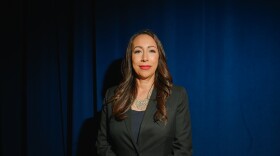President Obama plays host Wednesday to the leaders of two countries that have been a central focus of his administration's foreign policy: Afghanistan and Pakistan. Both are facing a resurgent Taliban, and Obama administration officials believe the two countries need each other to counter extremism in the region.
When Obama chose Richard Holbrooke to be a special representative for both countries, the idea was simple: You can't fix Afghanistan without Pakistan's help. Now, Pakistan looks to be the more urgent problem for the United States.
Holbrooke was on Capitol Hill on Tuesday, trying to convince skeptical lawmakers that they should be helping a Pakistani president whom many feel is not a reliable partner.
"Our goal must be unambiguously to support and help stabilize a democratic Pakistan headed by its elected president, Asif Ali Zardari," Holbrooke said.
Rep. Gary Ackerman (D-NY) was not easily convinced. "Let me be blunt," Ackerman said. "Pakistan's pants are on fire."
Ackerman argued that rather than recognizing the urgent danger of extremism in Pakistan, the country's leaders "seem convinced that if left alone or attacked piecemeal, the Islamist flame will simply burn itself out."
A Balancing Act
Holbrooke tried to tamp down the drama at a time when Congress is considering tripling nonmilitary aid to Pakistan to $1.5 billion a year. "We do not think Pakistan is a failed state," Holbrooke said. Rather, he said, it is a government that is facing tremendous challenges and needs U.S. help to counter the Taliban.
Obama has a delicate balancing act Wednesday as well. On the one hand, the administration needs to persuade Congress to boost both military and nonmilitary aid to Pakistan and show that Pakistan's government deserves the support. On the other hand, the administration has been trying to turn up the heat on Zardari's government to take decisive action against extremists and ensure the safety of Pakistan's nuclear arsenal.
Obama administration officials also have complicated relations with Afghanistan's president, Hamid Karzai, though he was upbeat on the eve of the trilateral meetings. Speaking at the Brookings Institution, a Washington think tank, Karzai said that there have been difficult moments in U.S.-Afghan relations.
"We've had ups and downs," he said, referring to U.S. complaints about corruption in Afghanistan, and Afghan concerns about civilian casualties in the war. But, Karzai said, "the fundamentals of this relationship are very, very strong."
Holbrooke says Wednesday's meetings are "historically important." The delegations from Afghanistan and Pakistan will meet separately and jointly with Secretary of State Hillary Clinton at the State Department and with Obama at the White House.
Holbrooke pointed out that many of the government officials have never met each other, "yet for the United States, our most vital national security interests depend on cooperation between Afghanistan and Pakistan."
Holbrooke said the two countries have a long and complicated history of animosity, and the idea of these trilateral meetings is to come up with some concrete guidelines to cooperate in the fight against extremists.
Copyright 2022 NPR. To see more, visit https://www.npr.org. 9(MDAzMjM2NDYzMDEyMzc1Njk5NjAxNzY3OQ001))







